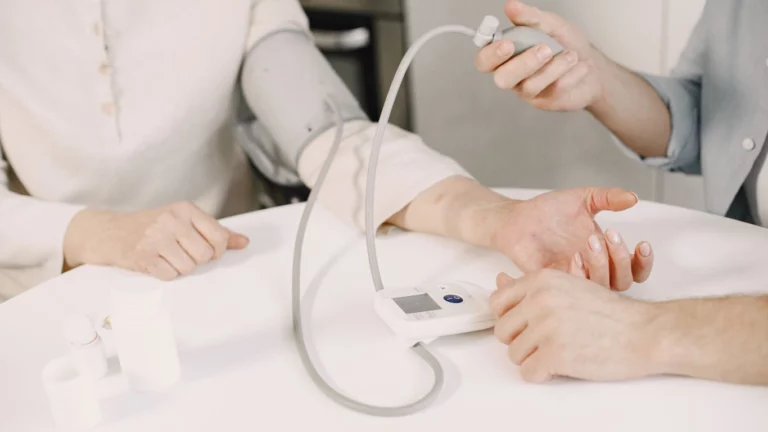Shocking Truth: Can Asthma Cause Sharp Headaches and What to Do About It
Can asthma cause sharp headaches? You’d be surprised how often this question pops up in both clinic visits and casual conversations. As a pulmonary nurse practitioner who’s worked with asthma patients for years, I can tell you—it’s not as uncommon as you might think. And if you’ve ever found yourself clutching your temples while also reaching for your inhaler, you’re definitely not alone. Let’s chat about the surprising ways asthma can impact more than just your lungs.
How Asthma Might Be Linked to Those Sharp Headaches

The Oxygen Connection
So here’s the deal—when your asthma flares up, your airways narrow, making it harder for oxygen to flow freely. That drop in oxygen levels, even if it’s slight, can lead to hypoxia. And guess what one of the symptoms of mild hypoxia is? Yep—sharp, throbbing headaches. I’ve seen patients come in thinking they were dealing with migraines, only to discover that poorly controlled asthma was the real culprit.
Medication Side Effects
Another thing to consider is your meds. I had a patient once who swore her rescue inhaler was giving her headaches. Turns out, she wasn’t entirely wrong. Bronchodilators like albuterol can sometimes cause vascular headaches, especially if you’re using them frequently. The stimulation of blood vessels and nervous system activity from these medications can mess with your head—literally.
- Short-acting beta agonists (SABAs) like albuterol can cause tension and vascular headaches.
- Oral corticosteroids can contribute to fluid retention, triggering pressure headaches.
- Overuse of medication often indicates poorly managed asthma, which is a headache (pun intended) in itself.
Understanding the Chain Reaction Between Inflammation and Pain

It’s Not Just About Breathing
Asthma is, at its core, an inflammatory condition. Your immune system goes a little haywire and starts inflaming your bronchial tubes. But inflammation doesn’t like to stay put. It often triggers systemic effects—headaches being one of them. I’ve had days where a patient’s asthma was acting up and they’d describe this icepick-like pain behind their eyes or in their temples. It makes sense when you think about the whole body being connected through inflammatory pathways.
Tension and Stress—The Hidden Culprits
One thing we don’t talk enough about is the mental side of chronic asthma. I’ve seen it firsthand—patients who are constantly anxious about the next asthma attack. That low-grade tension adds up and can easily translate into tension headaches. Sometimes it’s not the asthma itself, but the fear of asthma that’s causing the pain.
- Stress increases muscle tension in the neck and scalp.
- Chronic pain and stress hormones can make headaches worse.
- Asthma symptoms like tight chest or breathlessness can heighten anxiety, which cycles back into more pain.
Real Talk: What I’ve Seen in the Clinic

Let me share something personal here. One of my longtime asthma patients—a teacher in her late 30s—used to come in complaining about these sudden, piercing headaches that started right after a coughing spell. At first, we thought they were sinus-related. But the pattern kept lining up with her asthma flare-ups. We adjusted her controller medications, improved her air quality at home, and started managing her inflammation better. Guess what? The headaches dropped off significantly.
Another patient, a young athlete with exercise-induced asthma, would get headaches right after using his inhaler during workouts. In his case, we adjusted the timing and dosage and made sure he was hydrating properly. Small changes made a big difference.
Could Allergies and Sinus Pressure Be the Missing Link?

Allergies and Asthma: The Dynamic Duo
In the clinic, I often see asthma walk hand-in-hand with allergies—and when they show up together, things can get messy. One thing I’ve noticed over the years is that many patients with seasonal or environmental allergies also complain about sharp headaches. Especially during spring and fall, it’s like a storm of symptoms—sneezing, wheezing, and head pain all rolled into one frustrating package.
When your sinuses get inflamed or congested due to allergies, the pressure builds up behind your eyes, around your forehead, and can radiate out into these stabbing headaches. Add asthma into the mix, and your entire respiratory system is already under stress, which only worsens the symptoms. It’s not just coincidence—it’s interconnected.
What I Tell My Patients
Here’s a little trick I’ve shared with my patients over the years: start treating your allergies early, before peak season hits. This can dramatically reduce the domino effect that leads to sinus pressure and headaches. I’ve seen big improvements with basic steps like:
- Using saline nasal sprays to keep sinus passages clear
- Running HEPA filters at home to reduce allergens
- Making sure antihistamines don’t interact with asthma meds
- Staying well-hydrated (dehydration = headache magnet!)
Can Asthma Cause Sharp Headaches During Exercise?

Exercise-Induced Head Pain
This one comes up a lot, especially with my younger and more active patients. “Why do I get a stabbing headache after I run?” they’ll ask. And honestly, the answer’s not always simple. When you have exercise-induced asthma, your airways constrict during or after physical activity, leading to reduced oxygen flow and—you guessed it—headaches.
I had a teen patient once who played soccer and used his inhaler before every practice. But by halftime, he’d always be holding his head. We worked together to tweak his pre-workout routine, adjusted his warm-ups, and added post-exercise cool-down breathing exercises. It wasn’t a magic fix overnight, but his headaches eased up over time—and so did his asthma attacks.
Tips That Actually Work
- Warm-up before intense exercise – A 10-minute light jog or brisk walk can prepare your lungs better than diving straight into sprints.
- Monitor your breathing rate – Short, shallow breaths? That’s a red flag that you might not be oxygenating efficiently.
- Stay hydrated – It sounds basic, but it makes a huge difference.
- Review your inhaler technique – You’d be surprised how many people don’t use their inhalers properly. I always do a quick demo with my patients, and most find at least one thing they were missing.
When It’s More Than Just a Headache

Warning Signs You Shouldn’t Ignore
Sometimes a headache is more than just a headache—especially when it pops up during a full-blown asthma episode. I’ve seen rare but serious cases where patients experienced cluster headaches or migraines tied to poorly managed respiratory symptoms. The key is to know your body and when something feels off.
Here are a few red flags I tell patients to watch for:
- Sharp headache that comes on suddenly during asthma flares
- Visual changes, dizziness, or confusion along with the headache
- Chest tightness that isn’t relieved by a rescue inhaler
- Headache that worsens when lying down or bending forward
If you’re ticking any of those boxes, it’s time to talk to your provider. It could be a sign your asthma needs better control—or something entirely different is going on.
Personal Experience: It’s All About Patterns
One thing I’ve learned after years in pulmonary care is that chronic conditions like asthma are all about patterns. If you start logging when your headaches occur—what time of day, what you were doing, how your breathing felt—you might uncover a surprising connection. I had a nurse colleague who did exactly that. Turns out, her sharp headaches always followed nighttime asthma symptoms. A simple adjustment to her controller meds and some changes to her sleep environment made a world of difference.
So if you’re wondering, “Can asthma cause sharp headaches?”—yes, absolutely. And understanding the bigger picture can really help bring some much-needed relief.
Managing Both Asthma and Headaches: What Actually Helps?

It Starts with Asthma Control
If there’s one thing I tell every patient who asks me, “Can asthma cause sharp headaches?”—it’s this: the better you manage your asthma, the fewer unexpected side effects you’ll deal with. And yes, that includes those sneaky, stabbing headaches.
Asthma management isn’t just about puffing an inhaler when you’re wheezing. It’s about preventative care, daily habits, and knowing your triggers. I’ve worked with patients who went from constant ER visits and daily headaches to feeling like themselves again—just by tweaking a few key pieces in their asthma action plan.
- Stick to your controller medication schedule—even when you’re feeling fine.
- Track your symptoms and triggers in a daily log or app. Patterns matter.
- Don’t ignore your environment—dust, mold, and smoke sneak up fast.
- Get regular check-ins with your provider. Adjustments make a big difference.
Headache-Specific Tips That Complement Asthma Care
I also remind patients that while asthma may be part of the problem, it’s rarely the whole story. Headaches are complex. You might need a multi-layered approach to get full relief. Some non-medication tricks that have helped my patients:
- Magnesium and hydration: Both play a role in muscle relaxation and nerve health. A small deficiency can trigger tightness and pain.
- Neck and jaw stretches: Especially helpful if your headaches are tension-related.
- Aromatherapy with peppermint or eucalyptus oil: These can soothe both sinuses and muscles when used in a diffuser or massage oil.
- Blue light filters and screen breaks: Tech strain can add to headaches if you’re already sensitive.
Of course, all of this works best when paired with a personalized asthma plan. It’s like puzzle pieces—they all need to fit together.
When to Talk to a Specialist (And What to Ask)

Who Should You See?
So let’s say you’re doing all the right things, but those sharp headaches keep creeping in alongside your asthma symptoms. It might be time to expand your care team. Depending on your specific symptoms, a few options to consider:
- Pulmonologist – For deeper asthma evaluation, especially if you’re using meds often but still symptomatic.
- Neurologist – If your headaches have become chronic or increasingly severe.
- Allergist – For suspected allergy-driven sinus issues causing pressure headaches.
- ENT (Ear, Nose, and Throat doctor) – Especially if sinus headaches are a regular part of the picture.
Questions to Bring to Your Appointment
Here’s a quick cheat sheet I share with patients who feel overwhelmed walking into appointments. Jot these down, bring them with you, and don’t be afraid to advocate for yourself:
- “Could my asthma meds be triggering headaches?”
- “Is there a safer alternative to my current inhaler or steroid?”
- “Should we test for allergies or sinus issues?”
- “Do you recommend seeing a headache specialist or neurologist?”
- “How do I tell the difference between an asthma-related headache and a migraine?”
These kinds of conversations can open the door to new insights and better control over both conditions.
Final Thoughts From a Pulmonary Nurse Practitioner
Over the years, I’ve seen firsthand how complicated asthma can be. It’s not just about breathing—it’s about how your whole body responds. And while headaches might not be the most talked-about symptom, they are very real for a lot of folks. The good news? You don’t have to suffer silently. With the right combination of awareness, symptom tracking, and medical support, you can absolutely get both your asthma and headaches under control.
And remember—if something feels off, it probably is. Trust your gut. Ask questions. Keep notes. And never settle for just “getting by.” You deserve to breathe—and live—comfortably.
References
- Asthma and Allergy Foundation of America
- Centers for Disease Control and Prevention
- American Lung Association
- American Academy of Neurology
Disclaimer
This article is for informational purposes only and is not a substitute for professional medical advice, diagnosis, or treatment. Always seek the advice of your physician or qualified health provider with any questions you may have regarding a medical condition.

Bianca Nala is a compassionate Nurse Practitioner with a strong background in primary and respiratory care. As a health writer for Healthusias.com, she combines her clinical expertise with a talent for clear, relatable storytelling to help readers better understand their health. Bianca focuses on topics like asthma, COPD, chronic cough, and overall lung health, aiming to simplify complex medical topics without losing accuracy. Whether she’s treating patients or writing articles, Bianca is driven by a single goal: making quality healthcare knowledge accessible to everyone.







